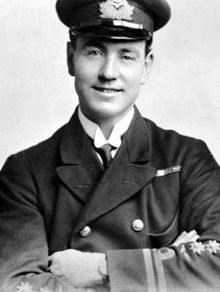Roderic Stanley (Stan) Dallas | |
|---|---|
 Roderic (Stan) Dallas, 1918 | |
| Nickname(s) | "Breguet", "The Admiral" |
| Born | 30 July 1891 Esk, Queensland, Australia |
| Died | 1 June 1918 (aged 26) Liévin, France |
| Allegiance | Australia United Kingdom |
| Service | Australian Military Forces (1913–15) Royal Naval Air Service (1915–18) Royal Air Force (1918) |
| Years of service | 1913–18 |
| Rank | Major |
| Commands | No. 1 Squadron RNAS (1917–18) No. 40 Squadron RAF (1918) |
| Battles / wars |
|
| Awards | Distinguished Service Order Distinguished Service Cross & Bar Mentioned in Despatches (2) Croix de guerre (France) |
Roderic Stanley (Stan) Dallas, DSO, DSC & Bar (30 July 1891 – 1 June 1918) was an Australian fighter ace of World War I. His score of aerial victories is generally regarded as the second-highest by an Australian, after Robert Little, but there is considerable dispute over Dallas's exact total. Though his official score is commonly given as 39, claim-by-claim analyses list as few as 32, and other research credits him with over 50, compared to Little's official tally of 47. Like Little, Dallas flew with British units, rather than the Australian Flying Corps. Beyond his personal combat record, Dallas achieved success as a squadron leader, both in the air and on the ground. He was also an influential tactician and test pilot. His service spanned almost the entirety of World War I fighter aviation.
Born on a remote property in rural Queensland, Dallas showed an early interest in aviation. He travelled to England at his own expense following the outbreak of World War I and became a pilot in the Royal Naval Air Service (RNAS) in August 1915. Initially seeing action with No. 1 Naval Wing on the Western Front in Caudrons and Nieuport 11s, he was chosen to test one of the earliest Sopwith Triplanes. This became his favourite type, and he achieved many victories with it through 1916–17, earning the Distinguished Service Order, and the Distinguished Service Cross and Bar. He was appointed commanding officer of No. 1 Squadron RNAS in June 1917. On the establishment of the Royal Air Force on 1 April 1918, he took command of No. 40 Squadron. Flying Royal Aircraft Factory S.E.5s, he achieved further victories before being killed in action on 1 June 1918 while on patrol near Liévin in northern France. He was buried in Pernes.